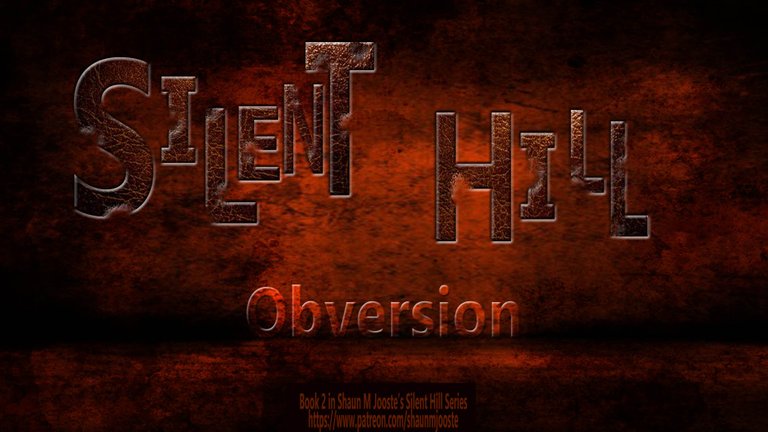
I'm taking a break from writing my upcoming horror novel, Silent Hill: Obversion, to talk about the key elements I consider when writing my horror novels. In past articles, I explained that I don't just sit and write. I always plan every aspect of the novel, breaking it down into parts, or acts, and then further into the outline for each chapter.
Yet, that just plots out the substance of the novel. There are more abstract elements to consider for when I write the novel, and not just how many chapters or pages the book will have. And when it comes to the horror genre, there are so many facets to work out, that to me it is never just as simple as writing the book.
So, if you will bear with me, I will explain the key elements of writing my horror novels, and more specifically, my Silent Hill novels.
Please note: these are my own considerations based on my own experience in writing horror, and not based on anything scientific nor any theoretical paper online.
GENRE CONSIDERATIONS
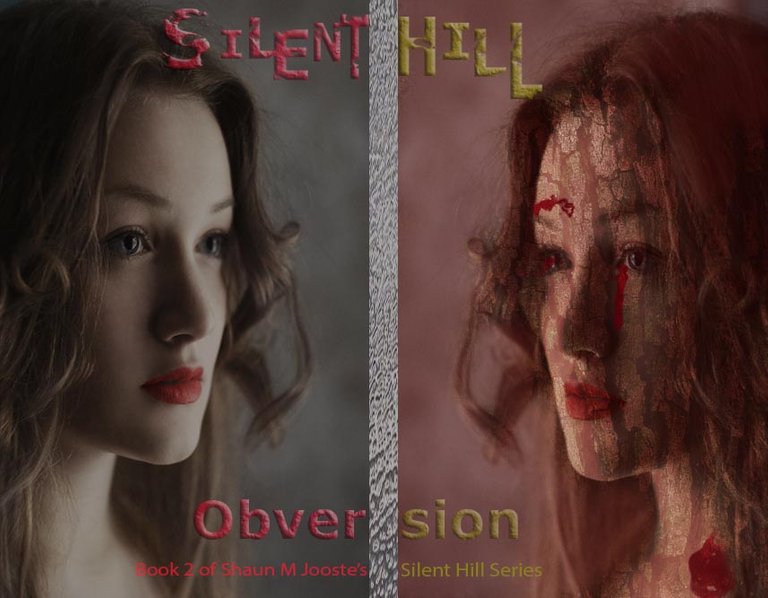
©2019 Shaun M Jooste
When it comes to horror, writing a novel isn't simply writing about monsters that kill. In my opinion, there are several different FORMS of horror. Now, I am not referring to types of horror (often referred to as horror sub-genres or categories), which I will get to in a moment. From all the horror i have read / played / watched, there are three specific forms of horror that I have found within them.
The first FORM of horror is Gore. This is where there is so much bloodshed and dismemberment, which has been placed there to simply gross you out. It is when you see blood spattering and flesh flying, a more physical form of horror that makes you turn your face away from the screen in sheer disgust. Stephen King expressed this as a gross-out type of terror when he said it is"the sight of a severed head tumbling down a flight of stairs, it's when the lights go out and something green and slimy splatters against your arm."
The second FORM of horror is the Supernatural. This is the one many of us are familiar with: Vampires, Werewolves, Zombies, Demons, etc. It is the fear of what creeps out in the night, and in our deepest nightmares. Much of the television shows we watch and games we play are based on this kind of horror, relying on that monster under our beds that threatens to kill us in our sleep.
The third FORM of horror is Psychological, or Mental Terror as Stephen King refers to is as. These are the terrors that grip our mind, such as the things that could be happening to children when they are kidnapped, or a serial killer hunting down his / her prey. When someone breaks into your home and you hide in the wardrobe, and can hear him breathing nearby, but you cannot see him...
Many horrors, such as Silent Hill, take aspects from each of these forms and incorporate them together in the tale. If you've played any Silent Hill game, you will agree that there is a tremendous amount of gore to go around. Bodies being ripper apart, and huge blade breaking through a man's sternum, etc. There are also the supernatural aspects, such as the demons / creatures that are spawned. Finally, there is the psychological aspect, the fear that drives you through each area of the game, and the character's psyche that plays a role in the atmosphere of Silent Hill.
As much as I try and incorporate every form in my Silent Hill novels, the key form I use is the psychological. Sure, my gore parts are quite graphical at times, but they are few and far between. I feel like gore is often used too much in entertainment as a cheap way to scare the audience, and many times where the gore is unnecessary or gratuitous. Yes, there are many supernatural elements, from the creatures that spawn on the streets of Silent Hill, to the mysterious Fog World that changes to the Otherworld. But it is the suspense and the terror, leading up to something unknown and possibly fatal, that really drives the horror in my novels.
There are also various types of horror, or sub-genres, as mentioned before. I don't really want to go into too much detail, but good lists can be found on Wikipedia or The Top Tens as examples. These give a more detailed description of which category of horror is being explored, such as Zombie Horror or Science Fiction Horror.
I guess for me, Silent Hill falls within the Supernatural Horror category, but this isn't really something I worry about when planning my work. However, choosing how much of each FORM of horror (gore, supernatural and psychological) I am going to use in my novel is.
THEME
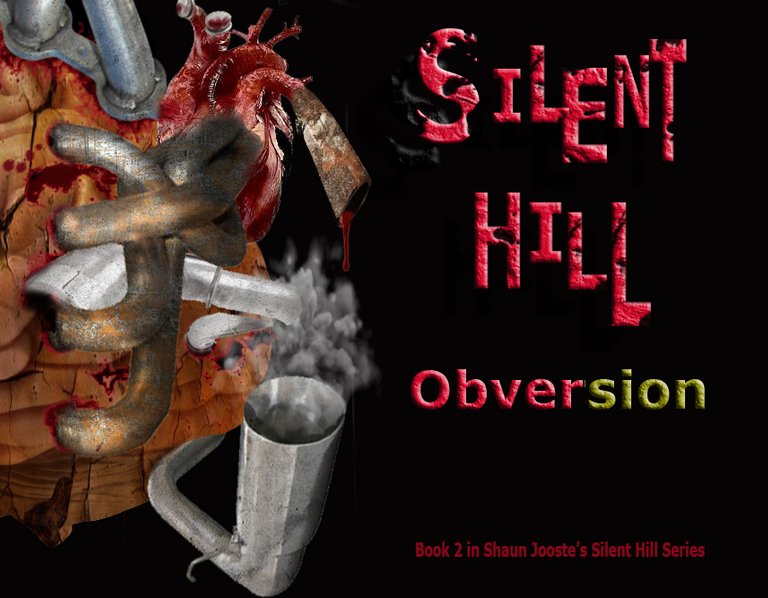
©2019 Shaun M Jooste
Theme is more important than many writers realise. And for my horror novel, this is especially true. With Silent Hill: Betrayal, I had to decide on a theme really early on, one that I could carry through the entire novel.
Why do I say themes are especially true for my Silent Hill novels? Well, themes help to link various separate elements together through one essential thread. Both my Silent Hill books have various locations, characters, creatures and settings. By developing a central theme, it helps to bring them all together, by integrating them to one single purpose. It is the one aspect that really brings the central idea of the novel to the fore. And with everything that happens in my horror novels, having a theme is important to bring the reader back to the main plot.
And it isn't just the central theme of the novel that is important. Each location in Silent Hill has their own theme. The characters, creatures and items found in those locations will have links and hints to those themes. As an example, Act 1 in my Silent Hill: Betrayal novel was called 'The Wild Hounds of Justice'. Most of the creatures spawned on the streets of Silent Hill, especially the main boss of Act 1, had a canine feature to them, as it related to the theme of Act 1 and the main antagonist of Act 1.
So as you can see, thematic settings and their integration within the story and its other elements are very important. It is the one very special key we writers have to let the readers know what they should be focusing on. If something doesn't really suit the theme of my plot or the location, it either gets taken out or the theme is adjusted to accommodate it, depending on how important it is to my story.
ATMOSPHERE AND MOOD
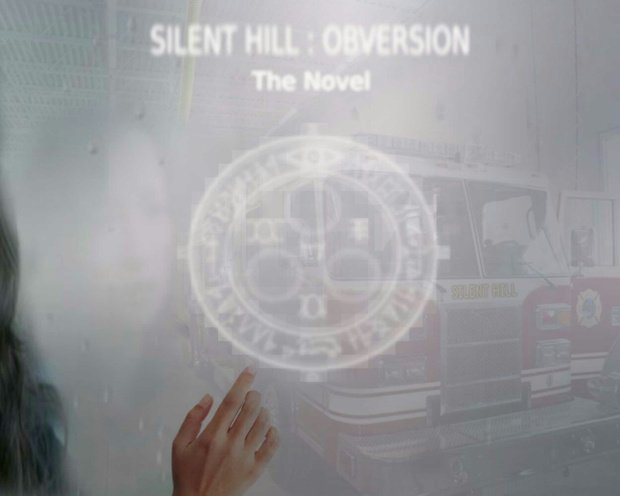
©2019 Shaun M Jooste
While theme focuses on the central message that the writer wants to convey to the reader, atmosphere and mood are tied to the emotions that the writer wants to evoke within the reader. While it may seem that atmosphere and mood are the same thing (and in many instances they are regarded as the same), there is actual a slight difference between the two. Even though they serve the same purpose of tugging at the heartstrings of the reader, they are separated by the HOW.
When it comes to the MOOD, it refers to the emotional state of individuals. When characters in the novel are afraid, it instills fear in the reader if it is written correctly. When characters develop feelings for other characters, this romantic mood can be passed onto the reader. A boring novel can often be changed by changing the mood of the characters. It would be rather dull to just read about a character that is morbid all the way through a book. Memories and nostalgia play integral parts in setting the mood for readers. And when something personal comes along, it can often affect the mood of both the characters and the readers at the same time.
As my novel deals with horror and terror, most instances call for a tense mood. This does not mean my character will be living in fear throughout the book. There will be feelings of confusion, mystery, anger, joy and revelation. A good writer can evoke these feelings within readers, especially if they have captured them properly within the story. So when I am writing a special scene, I am always aware of the mood I am trying to set for both the character and the reader.
The atmosphere deals with location. Sometimes the place itself with set the tone for the emotion or mood of the character. Silent Hill is perfect for a creepy atmosphere, with the foggy streets where anything can come out of nowhere to kill you. The atmosphere of locations can have major effects on the moods of characters, such as the Otherworld demonic settings which pour fear into the hearts of many.
Both mood and atmosphere are very essential elements while I write my horror novel. They help me convey the correct emotions to the reader, the most important of which is terror. Sometimes this calls for a soft approach, such as when I am trying to build suspense and mystery. Other times it calls for a more dramatic, direct approach. And deciding on the right approach could mean the difference between a good novel, and a great novel.
FORESHADOWING AND SUSPENSE
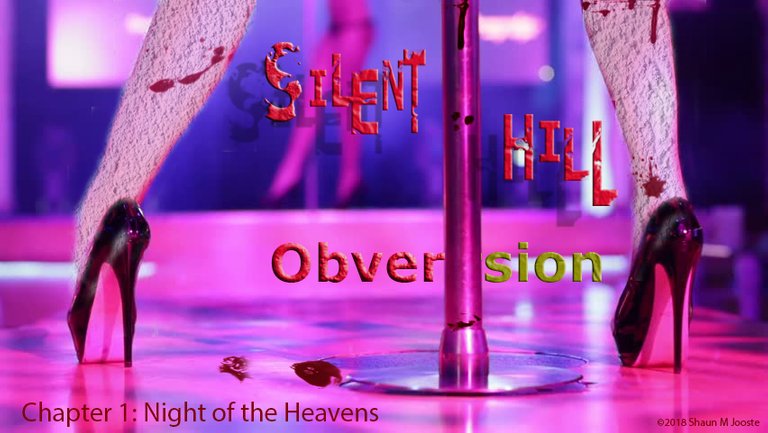
©2019 Shaun M Jooste
I've mentioned suspense a few times already, and I cannot stress how much I enjoy building suspense in my scenes. Whether it is for something that lurks around the corner, or for the unknown, suspense is critical to building terror in horror novels.
When it comes to novels like Silent Hill, this is where Foreshadowing comes into play. This term is usually used in film screenplays, but can be used in novels too. It means referring to future events that will happen. This can mean small notes found throughout the early stages of the story which refers to something that will occur much later on in the novel. Or following a trail of blood through misty streets, with words warning the character to go back, making you wonder what will be found at the end of the trail.
I play a lot with foreshadowing and suspense, which varies between short-, medium- and long-term suspense. My Silent Hill novels are divided into three parts, each with their own specific location and plot. The short-term suspense deals with what the characters are facing immediately, the danger that is right in front of them. The medium-term suspense deals with all the clues and hints that lead towards the end of that specific part of location. And the long-term suspense features all the clues and signs throughout the whole book (back to the theme) which ultimately leads to the final ending.
VISUALISATION
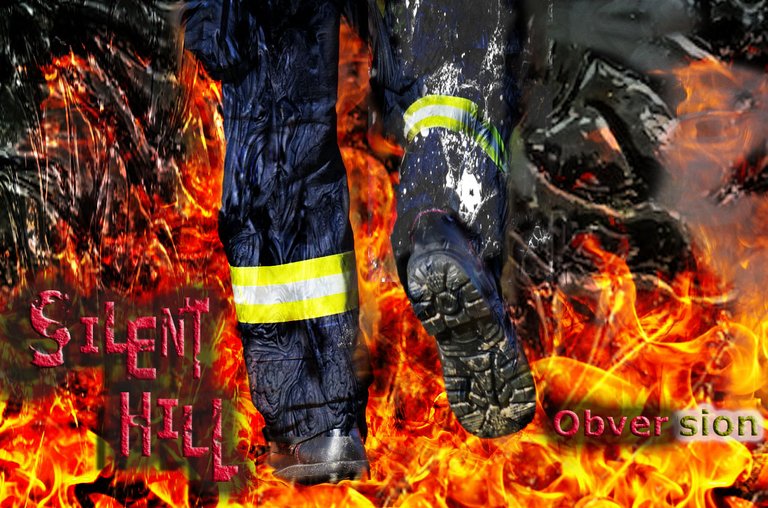
©2019 Shaun M Jooste
The Silent Hill games and movies we very visual. It was easy the audience to see what was happening. When it comes to the novel, it takes more work to bring to mind the images of what is happening to the readers. This means spending an intense amount of time visualising scenes and events in my head, before I even start writing them out. Even though I've planned out what will happen in each chapter, I have to take a moment to meditate and picture the events in my head so that I can describe it properly to the audience.
This takes so much concentration and mental energy, that sometimes a chapter can be really draining. I know many writers out there that just write the scenes. There are times when it comes that easily to me. Other times, where key points are unfolding and every description is important, that I have to take a moment to sit back and play it out in my head. This enables me to present it to the reader in the best way possible.
SILENT HILL ASPECTS
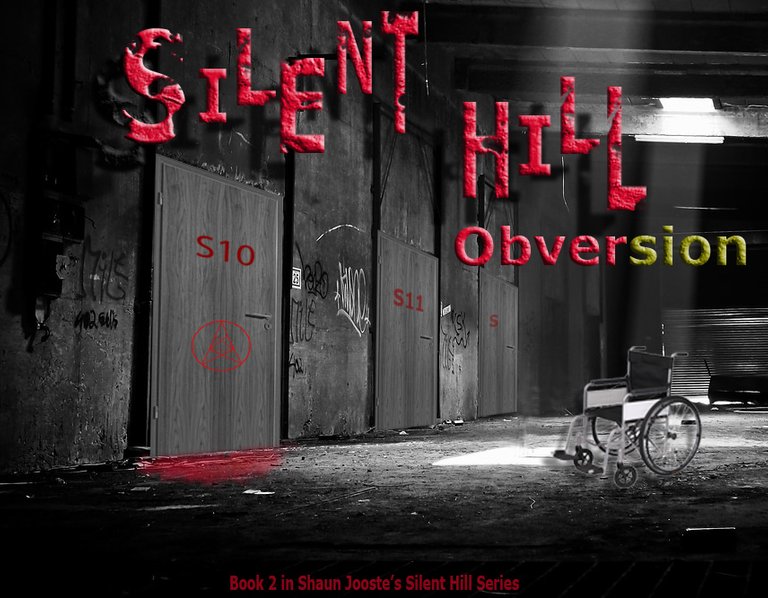
©2019 Shaun M Jooste
Lastly, there are the actual Silent Hill aspects I need to consider. This is where I cater for the fans of the games. It means including items such as maps, health potions and weapons that are replaced with more superior versions as the story progresses. Key is the survival horror aspect, which ensures that the character is not too empowered and it really feels like they are struggling with their psychological demons.
Then there is the Silent Hill lore which needs to be adhered to. Even though each story is one unto its own, there are the most basic foundation elements of Silent Hill that needs to remain true throughout the series. Sometimes the way characters and creatures are introduced to the reader is also important, since it relates to the psychology of the character.
I've also written it in such a way that it feels like the reader is part of a game. I've had a tremendous amount of feedback on Silent Hill: Betrayal where the readers have commented how much the novel plays out like the games. The way the puzzles are laid out, the creatures and their relation to the character... every aspect was perfectly planned to feel like it could easily be a Silent Hill game.
CONCLUSION
Some writers just write. Some writers plan beforehand and then just write. When it comes to my Silent Hill novels, I put more depth into it than that. Writing becomes a true artform, where every element of what is written is essential. To many this may sound tedious, but this is what I love to do. It is what helps me create a real horrific experience true to the Silent Hill franchise. And it is what really makes me feel proud to be called a writer.
Header Image: ©2019 Shaun M Jooste
Please support my work by subscribing for FREE to one of the following:
@shadowolfdg is a  SteemPunk and Steemit article Mentor for @schoolofminnows
SteemPunk and Steemit article Mentor for @schoolofminnows
Member of @teamsouthafrica
Post of the Day Award - @adsactly
Official Promoter for @tpot -- join our discord channel
Kind regards
Shaun M Jooste
Joint-Owner: AIR Entertainment (https://airentertainment.biz)
Director: Celenic Earth Publications (https://celenicearthpublications.wordpress.com)
Author, Screenwriter, Gamewriter, Journalist (https://celenicearth.wordpress.com)




@shadowolfdg - thanks for writing this great post. I also read, watch, and used to play a lot of horror. It is easily my favorite media genre. I have also wanted to be able to write something for years. This post has given me a lot of insight into the technical aspects of writing and has given me a little motivation to write some short stuff. Thanks again for writing!
Thank you so much for this comment! I am really glad that I could motivate you. I am really amazed at the response I got for this post and will make sure to do more on them.
I think Theme, Atmosphere and Mood are the backbones of not just horror stories but any story you want to write, the set the ground on which you may play with your characters events and situations, planning ahead of that is the best way to write anything, thanks for sharing!
This post was nominated by a @curie curator to be featured in an upcoming Author Showcase that will be posted in about 12 to 24 hours on the @curie blog.
NOTE: If you would like us to NOT feature your post in the Author Showcase please reply, or DM me on Discord as soon as possible. Any photos or quoted text from your post that we feature will be properly attributed to you as the author.
You can check out our previous Author Showcase to get an idea of what we are doing with these posts.
Thanks for your time and for creating great content.
Franz (@curie curator)
Hi, @shadowolfdg!
You just got a 0.01% upvote from SteemPlus!
To get higher upvotes, earn more SteemPlus Points (SPP). On your Steemit wallet, check your SPP balance and click on "How to earn SPP?" to find out all the ways to earn.
If you're not using SteemPlus yet, please check our last posts in here to see the many ways in which SteemPlus can improve your Steem experience on Steemit and Busy.
Hi shadowolfdg,
Visit curiesteem.com or join the Curie Discord community to learn more.
Thank you so much!
This post was shared in the Curation Collective Discord community for curators, and upvoted and resteemed by the @c-squared community account after manual review.
@c-squared runs a community witness. Please consider using one of your witness votes on us here
I can say that a writer has many ways to start his novel, he begins to square the plot, characters and how the dialogue will take place, everything will depend on the development of the same writer